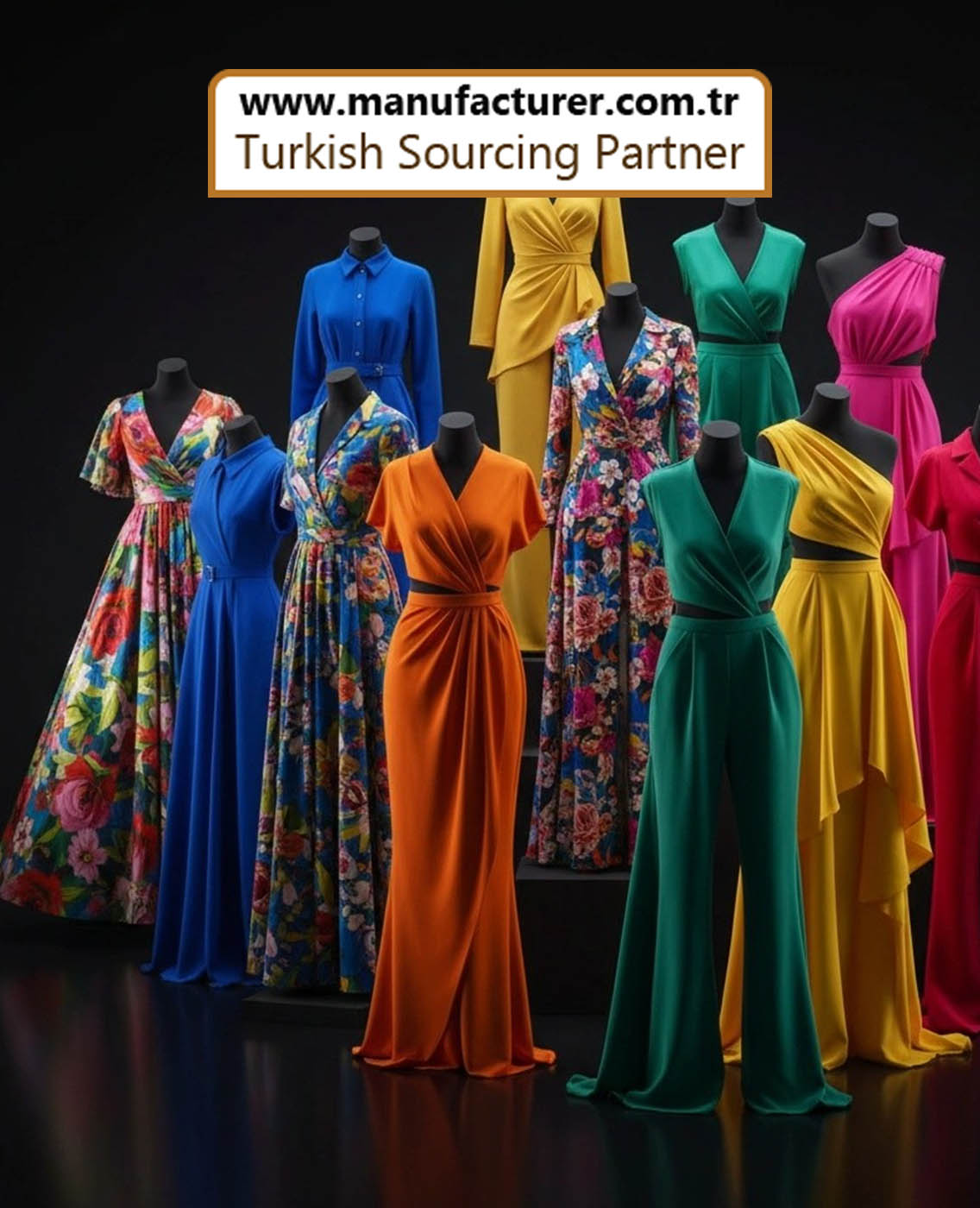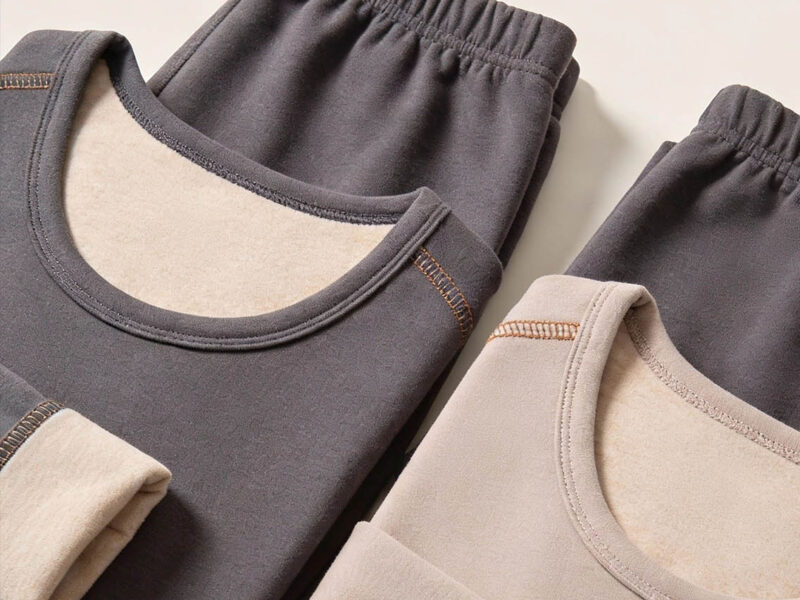Dress Production Costs in Turkey
Turkey’s deep-rooted textile tradition and modern production infrastructure provide competitive advantages in dress manufacturing costs. Many global brands prefer Turkey for producing high-quality and cost-effective dresses. This comprehensive analysis explores the factors affecting dress production costs, regional differences, and strategies for cost optimization.
Key Factors Affecting Dress Production Costs
Fabric Costs and Raw Material Expenses
Fabric accounts for 40-60% of the total dress production cost (Source: ISO – Knitted Fabric Industry Report). The main fabric types used in dress manufacturing in Turkey and their cost ranges are:
- Cotton Fabrics: €3-8 per meter
- Polyester Blends: €2-6 per meter
- Silk and Premium Fabrics: €12-25 per meter
- Viscose and Modal Blends: €4-9 per meter
👉 Note: The indicated price ranges represent general averages. Actual production costs will vary depending on the design details, quality of materials used, workmanship level, and order quantity.
Labor Costs
Labor costs for dress production in Turkey are 50-70% lower compared to European countries (Source: Turkish Textile Exporters’ Association reports). Skilled sewing labor costs range between €4-7 per hour. This advantage is particularly significant for dress models requiring detailed workmanship.
Production Volume and Minimum Order Effects
Dress production costs vary significantly based on order volume:
- 50-200 units: Unit cost is 25-40% higher
- 200-1000 units: Standard production cost
- 1000+ units: Unit cost decreases by 15-30%
(Source: Paradergi – Ready-to-Wear Price Analysis)
Dress Production Regions and Cost Analysis in Turkey
Istanbul and the Marmara Region
Dress manufacturers around Istanbul generally specialize in mid-to-high segment products. Production costs in this region are:
- Simple Dress Models: €8-15 per unit
- Medium Complexity: €15-25 per unit
- High-Detail Models: €25-45 per unit
Aegean and Mediterranean Region
Manufacturers in Izmir, Denizli, and surrounding provinces benefit from proximity to raw material sources, resulting in a cost advantage. Dress production costs in these regions are 10-20% lower than Istanbul.
Southeastern Anatolia Region
Factories in Gaziantep, Şanlıurfa, and Adıyaman offer the most cost-effective options for large-scale dress orders. Lower labor costs make this region especially attractive for simple and mid-segment dress production.
Production Cost Analysis by Dress Type
Casual Dress Models
Simple cut and minimal detail casual dresses are the most economical to produce. Average costs:
- A-line Dresses: €6-12
- Pencil Dresses: €8-15
- Tunic Dresses: €5-10
Business and Formal Dress Production
Formal dress production, requiring higher-quality fabrics and detailed workmanship:
- Blazer Dress Combinations: €20-35
- Suit Dress Models: €25-45
- Cocktail Dresses: €18-30
Special Occasion and Evening Dress Costs
Premium fabrics, embroidery, and special details increase evening dress costs:
- Simple Evening Dresses: €30-50
- Embroidered and Detailed Evening Dresses: €50-85
- Couture-Level Dresses: €85-150
(Note: Real couture production can reach €200-400 per dress.)
Cost Optimization in Dress Production
- Fabric Selection: Direct purchasing from manufacturers saves 20-30% (Source: ISO Report).
- Production Planning: Producing all sizes of the same model consecutively increases efficiency.
- Waste Minimization: Smart pattern placement saves 5-10% fabric.
- Labor Efficiency: Experienced teams reduce production time by 15-25%.
- Quality Control: Professional processes reduce waste to below 3%.
Additional Costs in Dress Production
- Accessories and Trims:
- Buttons/Zippers: €0.5-2
- Lining: €1-4
- Label/Packaging: €0.3-1
- Shipping:
- Europe: €0.8-1.5 per unit
- USA: €1.2-2.2 per unit
- Far East: €1.8-3 per unit
(Note: These prices apply to large-scale container shipments. Small shipments may cost more.)
- Certification: OEKO-TEX, GOTS, etc. add €0.2-0.8 per dress.
Seasonal Fluctuations and Technology Impact
- Summer dresses: lighter fabrics, lower costs.
- Winter dresses: 30-50% higher fabric costs, but higher sales prices.
- CAD systems: reduce fabric waste by 5-12%.
- Automatic cutting machines: reduce unit costs in high-volume production.
A successful dress production project requires thorough market research and target customer segmentation before cost analysis. Turkey’s competitive cost structure, access to quality raw materials, and experienced workforce provide sustainable solutions for both local and international brands.
References
- İstanbul Sanayi Odası – Knitted Fabric Industry Sector Report (2023). iso.org.tr
- Paradergi – Ready-to-Wear Price Competition (2024). paradergi.com.tr
- İTKİB – Textile and Apparel Export Reports (2024). itkib.org.tr




